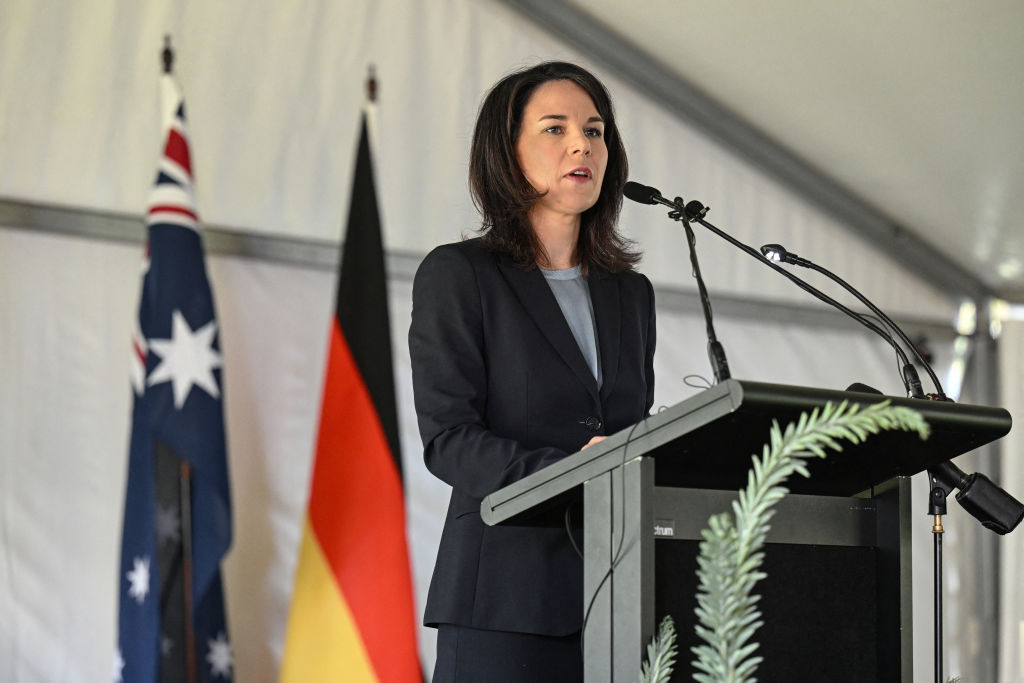Germany’s top diplomat warned Russia that its military intelligence service had staged an “absolutely intolerable” hack and that sanctions would follow. This Friday announcement followed NATO and EU assurances that they would not allow Russia’s “malicious” cyber conduct without a reaction.
Germany’s military assistance for Ukraine’s battle with Russia strained relations with Russia.
German Foreign Minister Annalena Baerbock blamed Russian state hackers for a cyberattack last year at a press conference in Adelaide, Australia. According to AP News, she named the Social Democrats, Germany’s ruling coalition party, as targets of the online assault. Additionally, the German Interior Ministry reported that hackers targeted German corporations, particularly defense and aerospace firms, and entities involved in the Ukraine war.
“Russian state hackers targeted Germany in cyberspace,” Baerbock said, identifying the group known as APT28, under the direction of Russia’s military intelligence service, as the one responsible for the cyberattack.
Russia to Face Sanctions, Germany Warns
Baerbock called the situation “absolutely intolerable and unacceptable” and promised Russia repercussions.
According to the Council of the EU and the Czech Foreign Ministry, the same group also targeted Czech institutions in a cyber campaign. By 2023, GRU-affiliated APT28 exploited a previously undiscovered Microsoft Outlook vulnerability.
The Czech ministry warned that cyberattacks against political entities, state institutions, and key infrastructure threaten national security and democratic processes in free democracies. The attacks did not specify any specific targets.
According to NATO, cyber threat organization APT28 targeted national governments, vital infrastructure operators, and other entities in Lithuania, Poland, Slovakia, and Sweden.
This cyber danger prompted NATO’s main political decision-making body, the North Atlantic Council, to use its powers to discourage, defend against, and fight all cyber attacks. The Council also stressed coordinated responses to such threats.
Moreover, in light of China’s growing influence in the Pacific, German foreign minister Annalena Baerbock is visiting Australia, New Zealand, and Fiji to discuss security strategies, as reported by France 24.
During her visit to Australia, Baerbock underlined Germany-Australia defense cooperation, stating a willingness to strengthen and extend it owing to shared security concerns. Moreover, her discussion with her counterpart Penny Wong focused on the Gaza conflict.
Read Also: Massive Data Breach in Australian Facial Recognition System Raises Alarm
(Photo : MICHAEL ERREY/POOL/AFP via Getty Images)
Germany’s Minister for Foreign Affairs Annalena Baerbock speaks during a ceremony to mark the return of four significant cultural heritage items to the Kaurna People from the collection of the Grassi Museum in Leipzig, at Possum Park in Adelaide on May 3, 2024.
NATO Warns of Russia’s Hostility Across Europe
In a Thursday statement, NATO warned of “hostile” Russian activity across Europe. The 32-member military alliance called Moscow’s recent moves a danger to Western security.
The statement blamed Russia for misinformation, sabotage, violence, cyber and electrical meddling, and hybrid operations, as reported by Euronews. These measures have affected Czechia, Estonia, Germany, Latvia, Lithuania, Poland, and the UK, according to NATO.
NATO criticized Russia’s conduct and offered support to impacted countries, calling the instances part of an expanding campaign. The alliance pledged to strengthen resilience and use instruments to discourage and protect against Russian hybrid threats.
European countries and Washington support Kyiv because of Russia-West tensions heightened by President Vladimir Putin’s 2022 invasion of Ukraine. This has raised rhetoric and encouraged hybrid warfare, which combines military power with unorthodox economic, political, and social actions.
Margus Tsahkna, the Foreign Minister of Estonia, stated that Moscow could potentially use migrants as hybrid attackers by crossing borders. Baltic nations have also highlighted worries about Russia deliberately jamming GPS navigation systems, disrupting air traffic.
Following these events, NATO reaffirmed its commitment to providing Ukraine with military and financial support in its battle against the Russian army, emphasizing that member nations will remain unfazed.
Related Article: Ukrainian REvil Hacker Gets 13 Years in US Prison for His Role in $700M Ransomware Scheme
ⓒ 2024 TECHTIMES.com All rights reserved. Do not reproduce without permission.


